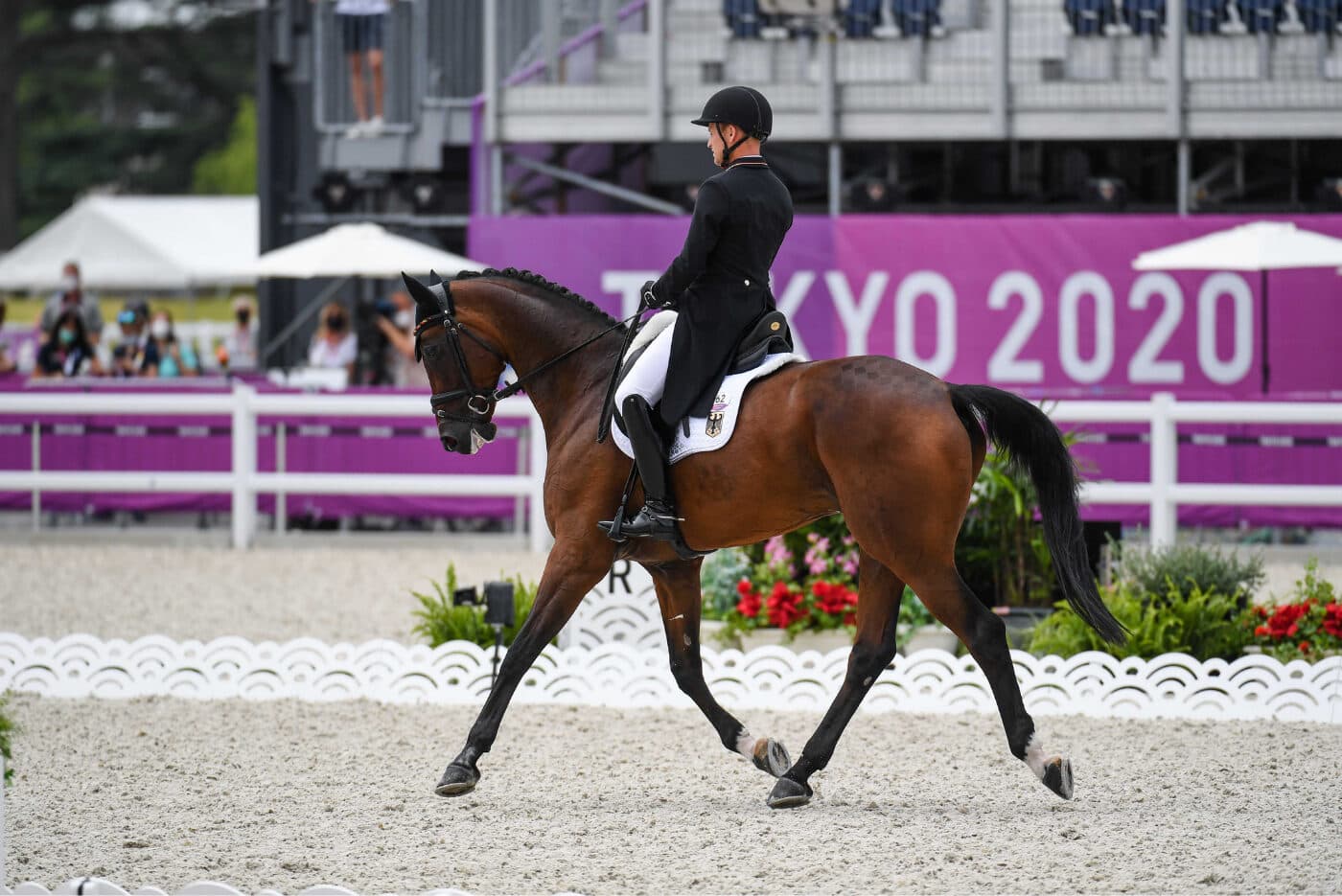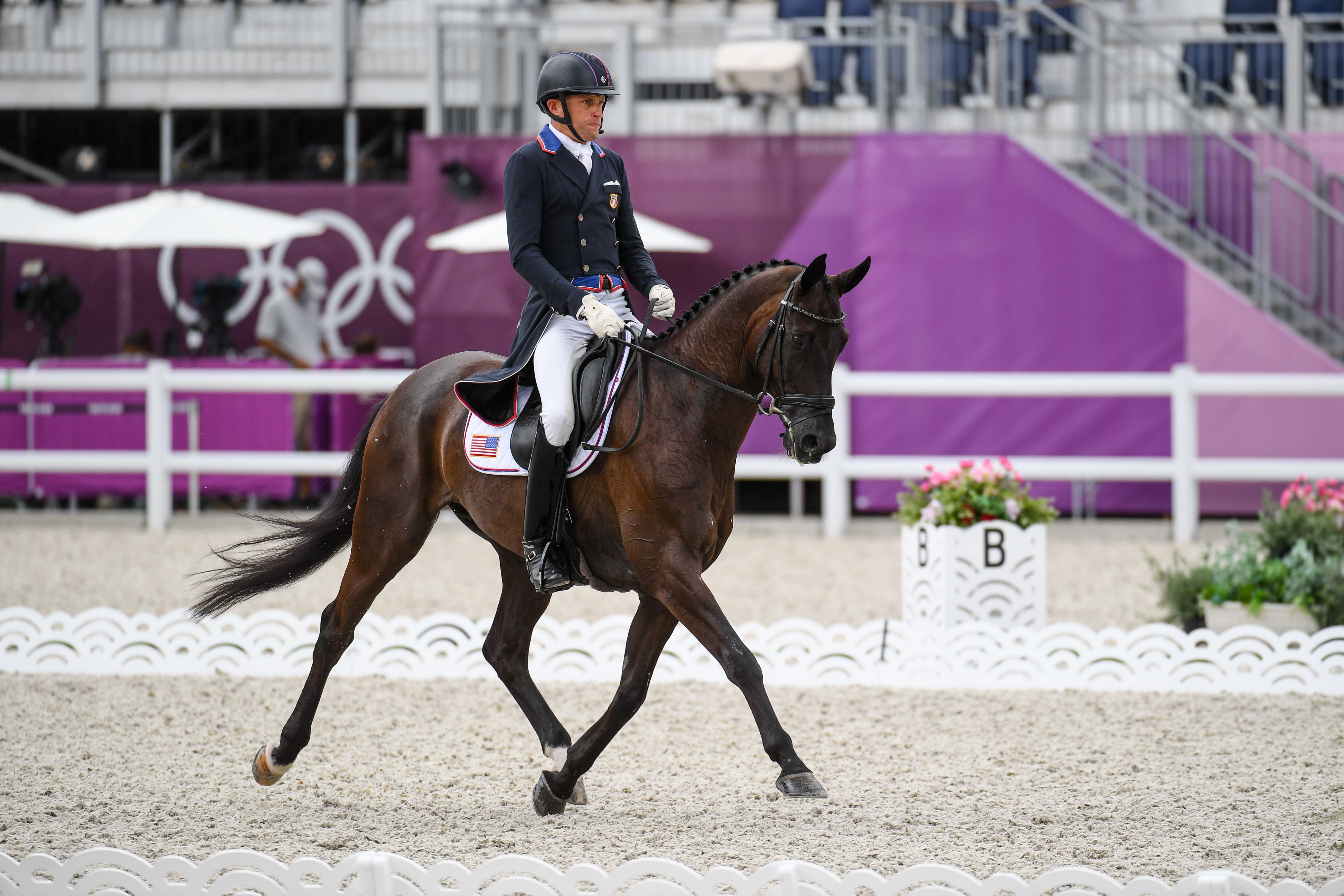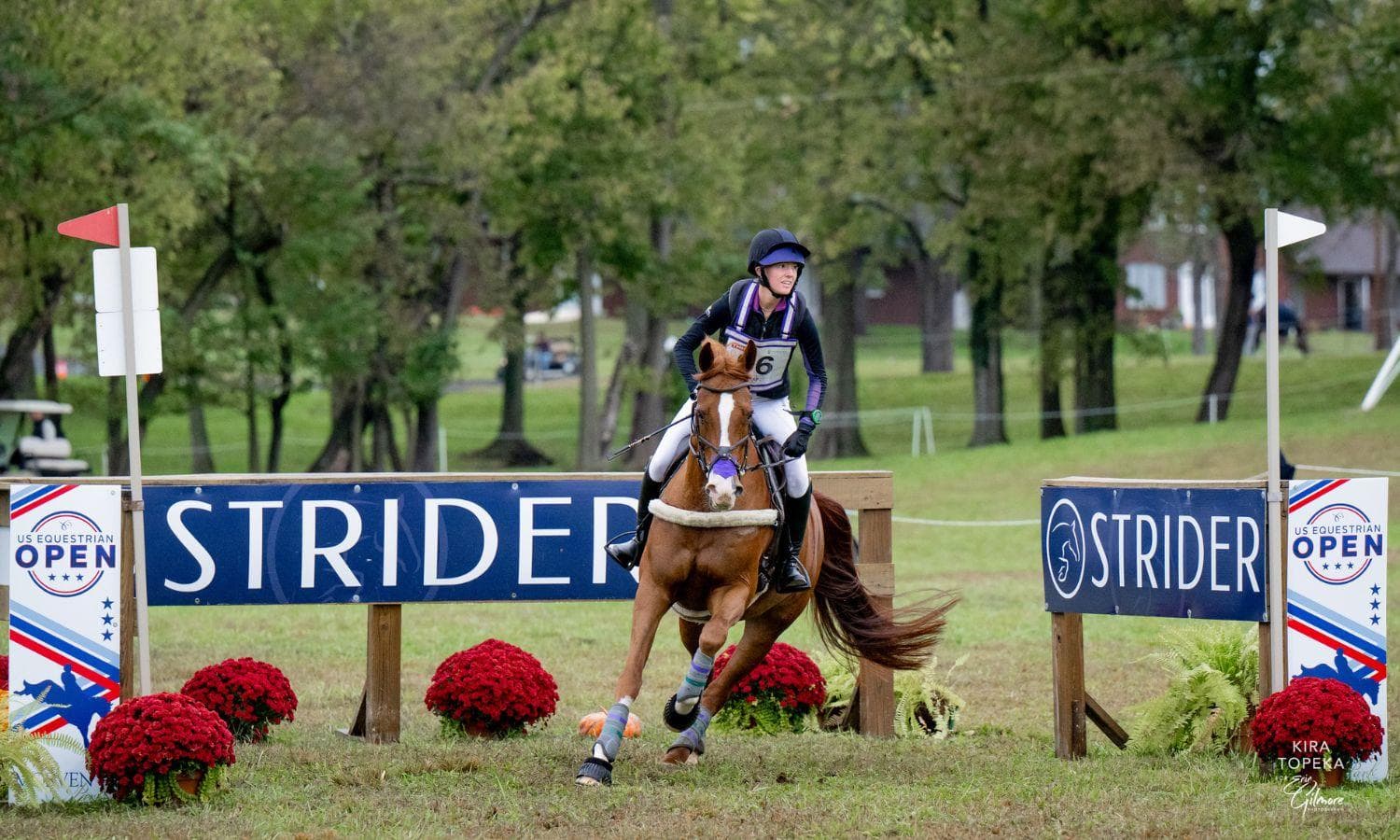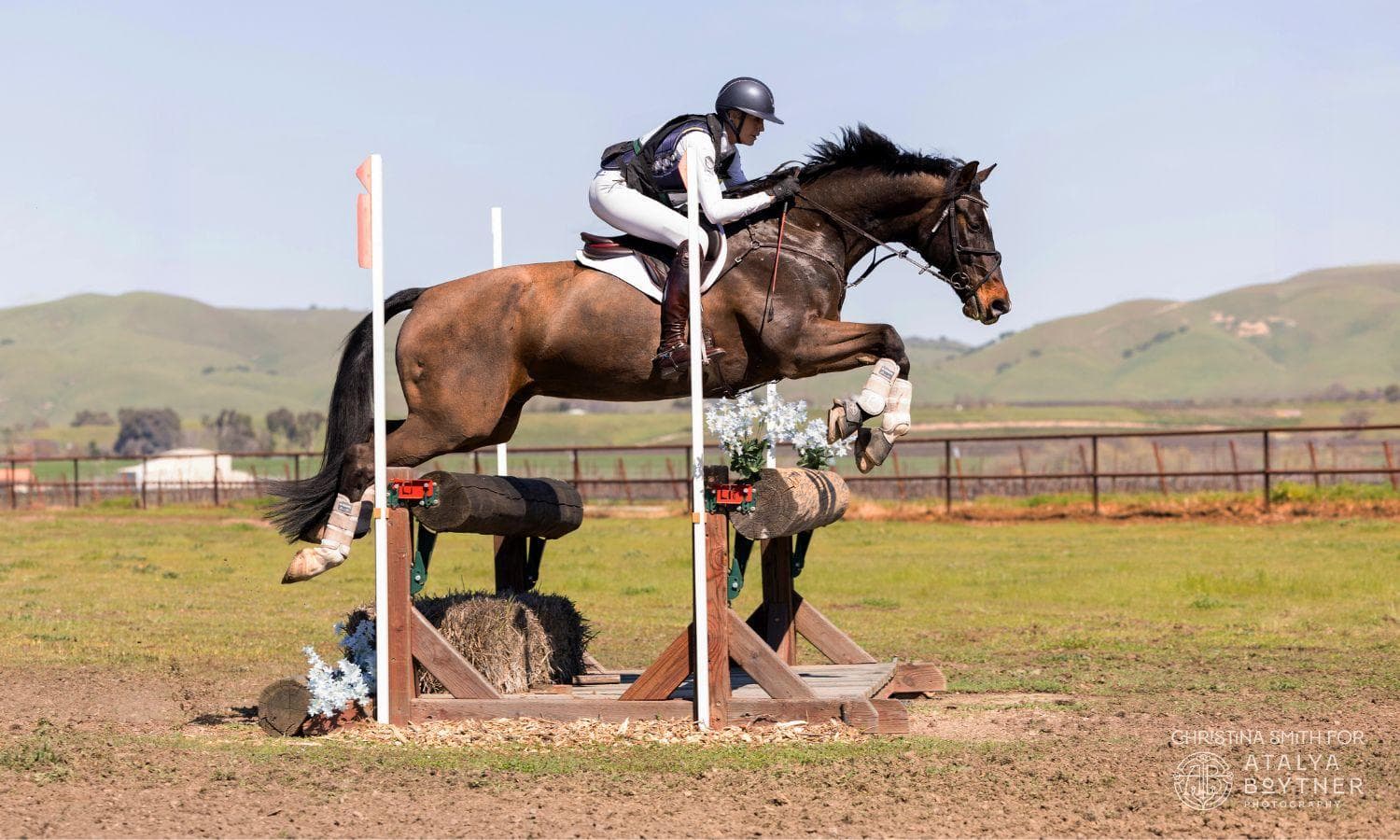Jung Blazes to the Top With Dressage Phases Concluding in Tokyo

The 2012 and 2016 individual Olympic champion, Germany’s Michael Jung, blazed into first place after dressage at the Tokyo 2020 Games with a superb test on Chipmunk.
Deservedly scoring 21.1 - a record for both rider and his country at an Olympics, according to EquiRatings - it was a joy to watch. From the first extended trot, the pair looked secure, positive, and harmonious. The test was as accurate and as well-delivered as that of long-time leaders Oliver Townend and Ballaghmor Class (GBR), but with more expression and ease. Jung and the Contendro 13-year-old demonstrated all this specially-written, short Olympic test asks for and each movement flowed into the next.
Jung, who celebrates his 39th birthday today (31 July), said: “We had a very good partnership today and everything worked like I wished it to, so I am very happy with him. It was actually much better for me that I had an extra year to train with this horse [who was previously ridden by Julia Krajewski]. Everything is working much better this year than last, and every day we have worked together to get a good partnership.”
Townend’s score of 23.6 means he goes into cross-country in the silver medal position, and that Great Britain holds on to team gold after the first phase. Their total score of 78.3 gives them just 2.1 marks in hand over the Germans who, despite Sandra Auffarth’s disappointing 34.1 on Viamant Du Matz, have leaped up into team silver with 80.4.
The margin would have been greater had Britain’s final combination, Tom McEwen and his 2019 Pau CCI5* winner Toledo De Kerser, scored in the low- to mid-20s as anticipated. However, after excellent trot work, the Selle Français 14-year-old was late into the first flying change and the canter work was a little tenser and less elastic as a result. Their mark was 28.9, which left them in 12th place individually.
“The two early changes cost me, but I’m very pleased in general - he coped really well in there,” said McEwen, riding at his first Olympics but part of Britain’s gold medal-winning team at the World Equestrian Games in Tryon in 2018.
Alongside Jung, the other new entrant to the top 10 after this third and final session of dressage was New Zealand’s Tim Price, who collected 25.6 with Vitali. Relaxed yet powerful, their performance showed good self-carriage from Vitali - a new ride to Price this year - and three out of the four flying changes were very good. Their mark, the best for New Zealand at an Olympics for 30 years since Mark Todd and Charisma in Seoul, catapulted New Zealand into bronze medal position with a combined score of 86.4, ahead of Japan (90.1), Sweden (91.1), and Australia (93.4).
The team scores are very tight - the USA is eighth, one mark behind China, with 94.6, only just over two show jumps away from a medal position. Boyd Martin was the final U.S. rider to go, riding the Turners’ elegant Tsetserleg, but U.S .hopes were, to a degree, dashed when the excitable 14-year-old Trakhener cantered out of the rein-back and their marks suffered.

Martin
said: “To be honest, I’m quite disappointed. There was one moment in the rein-back where he fell behind and we had a misunderstanding, and he cantered out and then spooked at the camera.
“There were some great moments, and some disastrous moments too. You come here hoping for a personal best, but the cross-country is so difficult and the time is likely to be tight, so I think we’re in with a chance still if we can deliver three good rounds across country.”
It means that Philip Dutton and Z are the best-placed of the three Americans in 16th with 301.5. Martin and Tsetserleg are 20th, and the 33 that Doug Payne and Vandiver earned in the first session give them the 30th spot.
Alex Hua Tian and Don Geniro hold on to an individual medal spot - now bronze - for China, while the second-best German rider, Julia Krajewski, has dropped to fourth on Amande De B’Neville.
Andrew Hoy, competing at his eighth Olympics for Australia, was one of the most eagerly anticipated in the final session. His dressage marks on the immaculate jumper Vassily De Lassos have been steadily improving, but while the 12-year-old chestnut did little wrong, he appeared close enough to boiling to mar the desired impression of relaxation and submission, and 29.6 left them equal 13th with France’s Christopher Six (Totem De Brecey).
Click here to view the USEA Tokyo Olympic Hub.
Equi-Score Results
View the cross-country order of go here.
All three phases of eventing will be live-streamed through NBC here.
Listen to the EquiRatings Eventing Podcast review of the third and final session of dressage at the Tokyo 2020 Olympics here:















